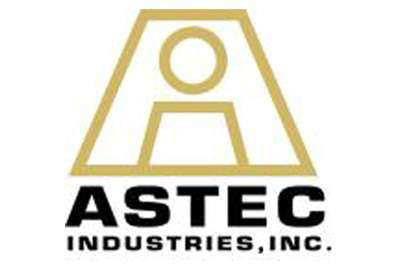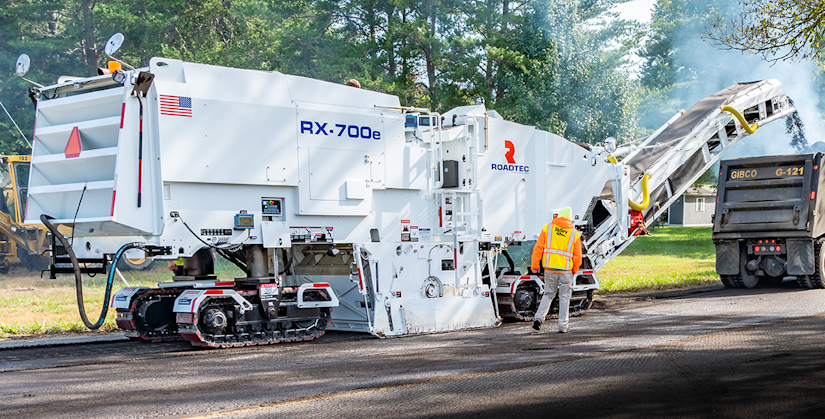Astec Industries, parent company of Roadtec and Carlson Paving, attributed disappointing first-quarter financial results to hazardous weather that slammed large sections of the country in March.
Floods, ice storms and heavy snow not only led to a 2.7 percent drop in domestic sales for the quarter over 1Q 2018, but also meant lost time in production at some of the company’s manufacturing plants that had to close for several days, according to company officials.
 Overall, the company posted sales of $325.8 million, up 0.1 percent compared to the first quarter of 2018. Earnings were down 30 percent, from $20.3 million to $14.3 million.
Overall, the company posted sales of $325.8 million, up 0.1 percent compared to the first quarter of 2018. Earnings were down 30 percent, from $20.3 million to $14.3 million.
“March is typically a strong month, but that was not the case this year,” said Steve Anderson, vice president of investor relations, during a conference call with analysists April 23rd. “Unusually harsh weather has been a factor in the United States. A lot of the equipment that we manufacture is used in the field and can’t operate in excessively muddy conditions.”
Astec’s other subsidiaries include Telsmith and Kolberg Pioneer in its Aggregates and Mining Group, and Heatec and CEI Enterprises in its Energy Group.
The company had previously projected 3 to 6 percent growth for the quarter, Chief Financial Officer David Silvious said.
Going forward, Silvious cautioned that second-quarter revenues would likely drop 5 to 15 percent, and the company would post flat to 3 percent growth for the full year.
Despite the disappointing performance, company officials pointed to some promising signs.
“While we are more cautious in our outlook for the second quarter and the remainder of the year due to the unexpected change in our backlog in late Q1 of this year, our customers continue to be optimistic about their businesses,” he said. “We’re encouraged that they have good backlogs and are busy. Further we have seen some positive developments in orders after quarter end.”
He attributes the performance drop to an unexpected lull rather than signs of an economic slowdown. The company expects equipment orders to ramp up, as projects affected by weather resume.
“A lot of folks are in need of equipment,” Silvious said. “They’re just not pulling the trigger for one reason or another.”
The company reported a higher than usual inventory in its roadbuilding segment and a lower backlog of orders, and dealers are reporting higher inventories as well.
“Many dealers have larger inventories than in the past years, and with interest rates climbing, their desire or their ability to increase capital expenditures can be impacted,” Anderson said.
Silvious also mentioned some other factors impacting sales, such as high material costs and more price competition among rival equipment manufacturers.
The company boosted prices on its products in 2018 to account for inflation. It also increased spending on long-term investments such as consulting costs and boosting its international sales force, which should start to pay off later in the year, Anderson said. International sales rose 13.7 percent in the first quarter.
Anderson added that, to account for the higher inventory, the company has been “adjusting manhours at some of our companies and looking at head count as well.”
The company’s backlog has dropped 46.8 percent for the quarter compared to 1Q 2018.
“While we are paying close attention to the decrease in our backlog, we note that we experienced historical high points in our backlogs in the first quarter of 2018,” Interim CEO Richard J. Dorris said in a news release. “We have already made a number of moves to adjust our capacity and, while we’ve seen some positive developments in recent order intake, we will continue to monitor the backlog and make adjustments where necessary.”
from Equipment World http://bit.ly/300g6xY
via Handy Rep Ai

Comments
Post a Comment